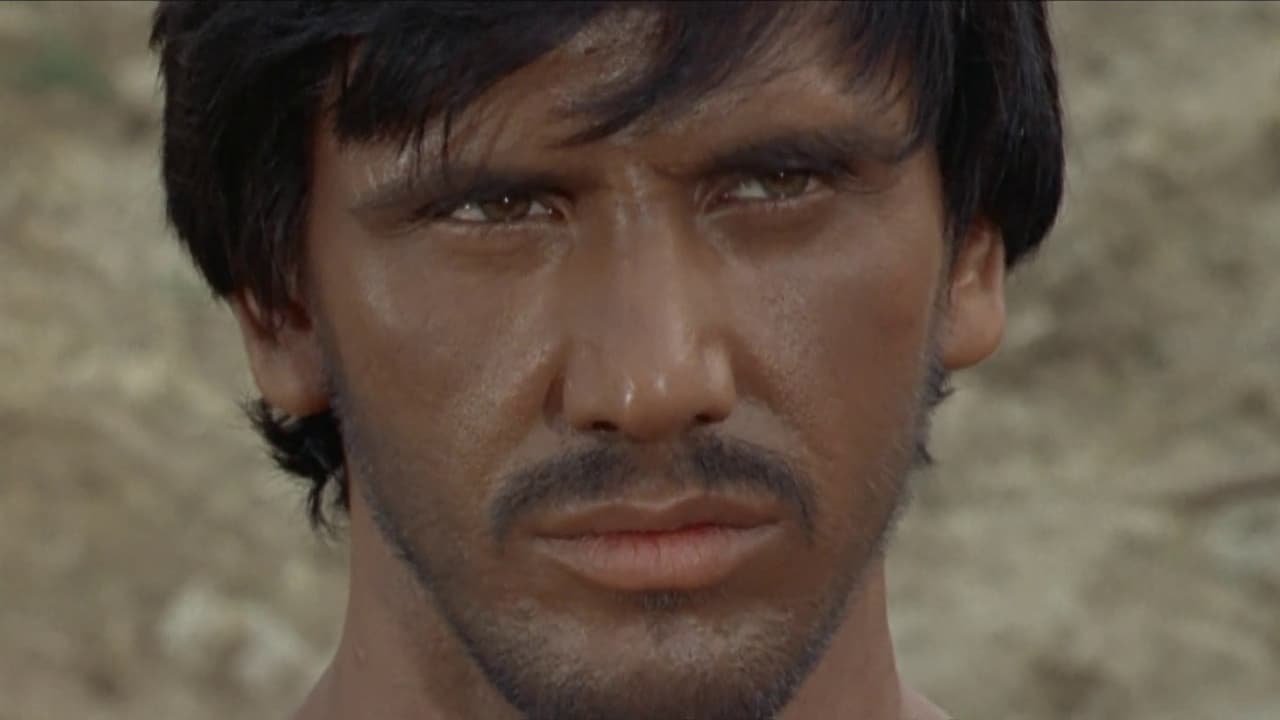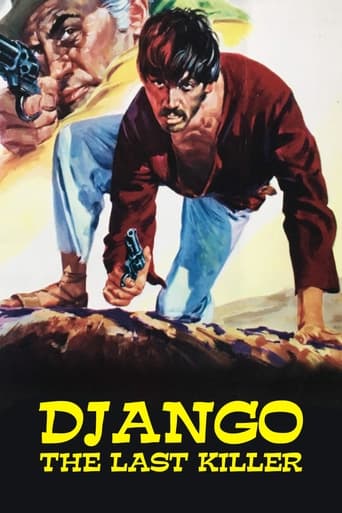

Ramón (George Eastman) is a young Mexican attempting to live a peaceful life along with his daddy (John McDouglas) but they are eventually harassed by hoodlums . Once time he finds that his father has been murdered and his nemesis results to be a powerful land baron called John Barrett (Daniele Vargas) . Barrett is a nasty owner who threatens and coerces townsfolk and obligates countrymen to leave their lands to take for him . Meanwhile Djanjo or Rezza or Rocco (Dragomir Bojanic-Gidra as Anthony Ghidra) settles a dispute between bands of cutthroats , then Ramon or ¨Chico¨ helps him and saves his life . As Ramon befriends a veteran gunfighter Django (Anthony Ghidra) who at the same time has been contracted by Barrett as the hired gun to kill ¨Chico¨ . Thanks to Rezza or Rocco , ¨Chico¨ learns the art of gun-play and he , then , goes out to avenge his killed dad , embarking on a line of crime , battling murderous and executes a single-handedly revenge , as he shoots , ravages and kills each person involved in the murder .This exciting Spaghetti contains noisy action , thrills , shootouts and turns out to be an acceptable Western and entertaining enough . The picture es starred by George Eastman or Luigi Montefiori along with his master of arms , the Yugolavia-born Dragomir Bojanic-Gidra , nicknamed under pseudonym as Anthony Ghidra who also interpreted some Westerns . At the beginning his career , Luigi starred as an extra but Italian westerns soon followed , usually under the pseudonym "George Eastman" . He once reportedly missed out on a role in a Franco Nero western because his height made Franco Nero look too short . As he performed several Pasta Westerns , such as : ¨Django Taciturno¨, "Django Sees Red" , ¨Keoma¨ , "Humpty Dumpty Gang" , "The Unholy Four" , and "The Three Musketeers of the West". Never quite "typed" , Luigi played some of them as main actor , others as secondary player . Soon moved into other film genres playing good guys , bad guys, and good-bad guys . These parts often exploited his athletic physique by having him remove his shirt, perhaps most memorably in Lina Wertmüller's Belle Starr (1968) . Support cast is plenty of familiar faces from Spaghetti Western , such as : Daniele Vargas , Mirko Ellis , Dana Ghia , John Hamilton and Giuseppe Addobbati or John McDouglas . Emotive as well as thrilling musical score by Roberto Pregadio , this soundtrack is one of the best parts of the film , plenty of catching and attractive sounds . Colorful and evocative cinematography by Angelo Filippini . Produced by Sergio Garrone who also directed some Westerns , the yarn was well directed by Giuseppe Vari , nicknamed as Joseph Warren . Vari was a good professional , a nice craftsman who directed various films of all kinds of genres such as : Sci-Fi : Urban Warriors ; Warlike : Revenge of the bloody beach ; Nunexploitation : Sor Emmanuel ; Peplum : Revenge of the Barbarians , Rome versus Rome , Conquest of the Normans , and specially Spaghetti such as : 1971 Il Tredicesimo è Sempre Giuda , 1969 Un Posto all'inferno , 1968 Un Buco in Fronte , 1967 Con Lui Cavalca la Morte , 1967 Un poker Di Pistole , 1967 The last gunfighter and 1966 Deguello .
... View MoreMexican homesteader George Eastman is beaten and robbed on the way to pay off his loan to a local big-wig. Turning down a chance to join a mob against the crooked moneylender, he instead goes and begs for an extension, returning home to find his parents murdered and his farm burned. Before long, he saves the life of a hired killer who teaches him the art of revenge.A very good low-budget spaghetti western, this benefits from a script that really knows how to push the viewer's emotions, vile heavies, and a couple of decent performances from Eastman and Anthony Ghidra as Django the killer.The best thing about this is Ghidra's insights into the world of the gunfighter. His and Eastman's scenes are quite compelling and are alone enough to make the film worth watching.There's also a fantastic Ennio Morricone sounding score by Roberto Pregadio.
... View MoreAs you probably know, there were a number of spaghetti westerns that capitalized on the success of DJANGO, namely by renaming (during the dubbing) of characters to the name of "Django", as they did with this movie. (At least they didn't try to further the ripoff here by having the Django here dress in black and carry a machine gun, as some other films did.) Anyway, this spaghetti western is not without flaws. It's more leisurely paced than other spaghetti westerns - it takes more than 30 minutes for Eastman's character and "Django" to meet, and Eastman's training takes a considerable amount of time. Some viewers may squirm in their seats at some point. His quest for revenge is almost forgotten about along the way. The "surprise" twist that happens late in the movie will probably be no surprise to most viewers.On the other hand, the production values (sets, photography, etc.) are decent, there is some good and atypical location work (green fields instead of desert), the bad guys are hateful enough, the musical score by Roberto Pregadio is first rate, and there is some interesting dialogue. No, this movie is not a classic of the genre, and certainly won't convert newbies to the genre, but if you like spaghetti westerns like me, it is acceptable.
... View MoreA cut-rate Spaghetti Western which recalls superior titles like THE RETURN OF RINGO (1965), THE BIG GUNDOWN (1966) and DEATH RIDES A HORSE (1968) but which is so humorless and, indeed, ponderous as to be hilarious - particularly the would-be hard-boiled dialogue, i.e. two speeches delivered by the hero's father (about the desolate state of their land before his arrival) and his bounty hunter-mentor (about the trick in approaching a showdown); my favorite, however, is when the chief villain's lieutenant stands up to his boss with the preposterous line: "I know you like I know the odor of my feet!"; at least, the music score by Roberto Pregadio is nice...
... View More